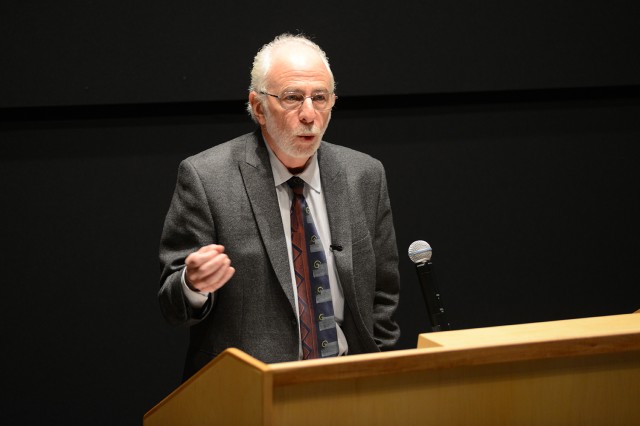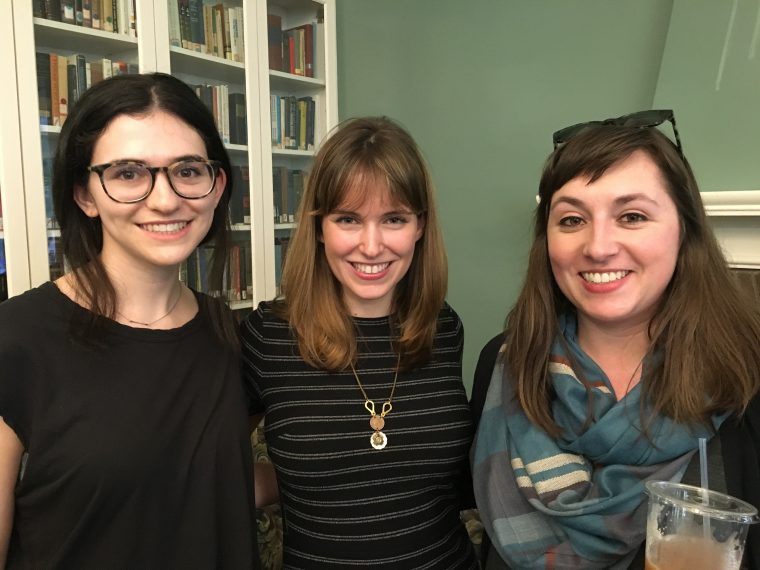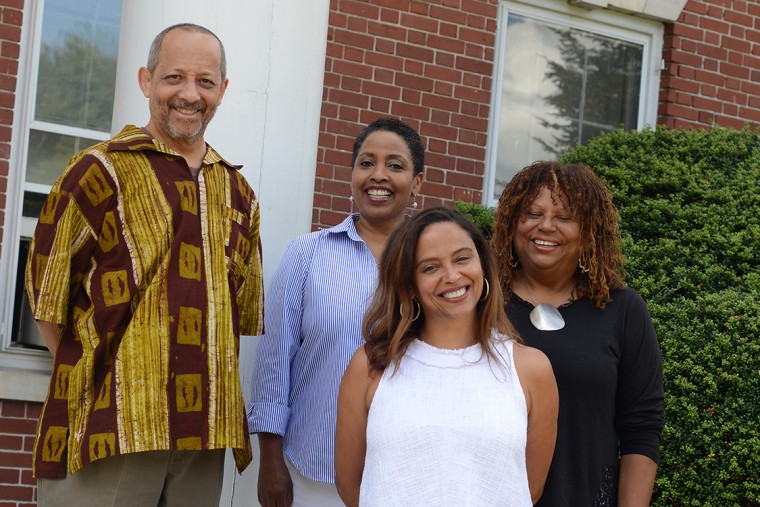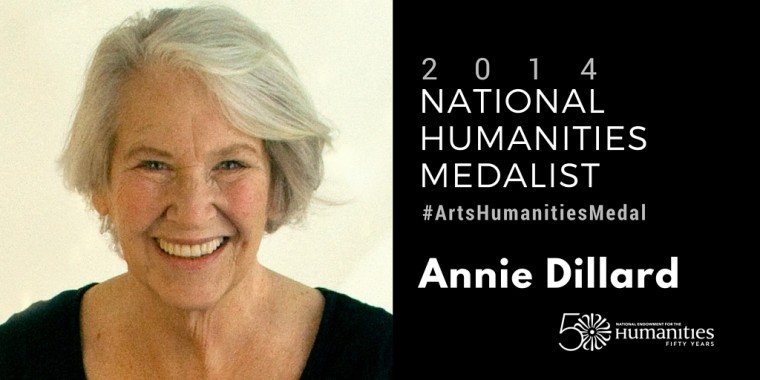A star-studded cast of contributors curated by Shapiro-Silverberg Professor of Creative Writing Amy Bloom ’75 fill the pages of New Haven Noir, featuring original stories from Michael Cunningham, Stephen Carter, Roxana Robinson, Assistant Professor of English Hirsh Sawhney and many others. The book is the latest addition to an award-winning series of original noir anthologies published by Akashic Books, founded by publisher and editor-in-chief Johnny Temple ’88. “I’m a big fan of noir,” says Bloom, editor of the anthology, which has garnered praise from both Publishers Weekly and Kirkus Reviews. “When Johnny called me and said, I don’t know if…
In light of President Trump's tweeted ban on transgender Americans serving in the military, Richard Slotkin, the Olin Professor of English and American Studies, Emeritus, writes in The Conversation about the long history of integrating minorities into the U.S. military. The armed forces have long "played a vital role in shaping American social policy toward the country's minorities," Slotkin writes. He recalls how "fear and resentment" of African-Americans and immigrants from Asia and Europe "generated a political backlash," resulting in oppressive Jim Crow laws and an anti-immigrant movement in the late 19th and early 20th centuries. Then, "The crisis produced by…
Richard Slotkin, the Olin Professor of English, emeritus, was featured in a PBS American Experience special, "The Great War," on April 10. "It's a watershed in American history. The United States goes from being the country on the other side of the ocean to being the preeminent world power," says Slotkin in Chapter 1 of the series. In Chapter 2, Slotkin appears beginning around 15 minutes. "When Wilson declares war, the total armed trained force of the United States is less than a quarter of a million men," he says. "The British Army loses more than that in one battle." "In order…
On Feb. 24, three recent Wesleyan alumnae returned to campus for a panel conversation on “Finding a Career Path in Publishing.” The event, held in Downey House, was co-sponsored by the Department of English, Writing Programs and the Shapiro Center for Creative Writing. Caitlin O’Shaughnessy ’08, Anabel Pasarow ’16, and Danielle Springer ’13 traced their career history and offered encouragement and tips to undergraduate audience. O’Shaughnessy, marketing manager at Penguin Press, a division of Penguin Random House, had previously worked as an editor at Viking, and in publicity at InStyle magazine. Currently, she is also part-time student in the MBA…
Christina Crosby, professor of English, professor of feminist, gender and sexuality studies, is the author of an essay on injury and grief in a special issue of Guernica magazine on "The Future of the Body." Titled, "My Lost Body," Crosby's essay explores the grief she has experienced since a bicycle accident 13 years ago, just after her 50th birthday, left her paralyzed. The accident was the topic of her memoir, A Body, Undone: Living On After Great Pain (NYU Press, March 2016). She writes, "Because of my transformation, I have worked hard to conceptualize how embodied memory works—like the muscle memory that allows you to ride…
Amy Tang, assistant professor of English, assistant professor of American studies, is the author of Repetition and Race: Asian American Literature After Multiculturalism published by Oxford University Press, May 2016, Repetition and Race explores the literary forms and critical frameworks occasioned by the widespread institutionalization of liberal multiculturalism by turning to the exemplary case of Asian American literature. Tang reinterprets the political grammar of four forms of repetition central to minority discourse: trauma, pastiche, intertextuality and self-reflexivity. She shows how texts by Theresa Cha, Susan Choi, Karen Tei Yamashita, Chang-rae Lee, and Maxine Hong Kingston use structures of repetition to foreground moments…
In its recent meeting, the Board of Trustees conferred tenure on four faculty members. They are Associate Professor of Government Erika Franklin Fowler, Professor of African American Studies Kali Gross, Associate Professor of English and American Studies Amy Tang, and Associate Professor of Chemistry Erika Taylor. They join eight other faculty members who were awarded tenure earlier this spring. One faculty member, Louise Neary, was promoted to adjunct associate professor of Spanish. In addition, six faculty members are being promoted to full professor: J. Kehaulani Kauanui, professor of American Studies and anthropology Matthew Kurtz, professor of psychology Cecilia Miller, professor of…
Professor of English Christina Crosby is the author of a new book published by NYU Press in March 2016. Titled, A Body, Undone: Living On After Great Pain, the novel chronicles her encounter with pain, which left her paralyzed. Three miles into a 17-mile bike ride, the spokes of her bike caught a branch, pitching her forward and off the bike. With her chin taking on the full force of the blow, her head snapped back leaving her paralyzed. This event, as she makes note of in her novel, opened her eyes to the beauty, yet fragility of all human bodies. Her…
The Chronicle of Higher Education has published an excerpt from a new memoir by Christina Crosby, professor of English, professor of feminist, gender and sexuality studies. The book, A Body, Undone: Living On After Great Pain, is due out later this month from NYU Press. Crosby tells the story of how her life changed after a bicycle accident in 2003, just after her 50th birthday, left her paralyzed. According to the publisher, "In A Body, Undone, Crosby puts into words a broken body that seems beyond the reach of language and understanding. She writes about a body shot through with neurological pain,…
Joel Pfister, the Olin Professor of English and American Studies and chair of the American Studies Department, is the author of Surveyors of Customs: American Literature as Cultural Analysis published by Oxford University Press, 2016. Within his book, Pfister argues “that writers from Benjamin Franklin to Louise Erdrich are critical 'surveyors' of customs, culture, hegemony, capitalism’s emotional logic, and more. Literary surveyors have helped make possible—and can advance—cultural analysis.” While noting that cultural theory and history have influenced interpretations of literature, he asserts that, in fact, “literature can return the favor.” The book raises many historical, but timely questions. "When and why…
#THISISWHY This year, four Wesleyan faculty are coordinating a year-long interdisciplinary project that enables students from an array of majors and academic disciplines to collaborate, create and work together as a learning community under the theme "Renaissance Projects: Reclaiming Memory, Movement and Migration." The Collaborative Clusters Initiative of the Allbritton Center enables faculty from a variety of departments and programs to develop a shared research project with a unifying theme. Cluster courses in 2015-16 provide perspectives from dance, music, English, and African American studies on the ways performance practices have engaged the past and present in the face of great…
Annie Dillard, who taught writing at Wesleyan for more than 20 years, will receive the 2014 National Humanities Medal, the White House announced on Sept. 3. President Barack Obama will confer the medal on Dillard and nine others at a ceremony at the White House on Sept. 10 (which will be live-streamed at 3 p.m. here). The National Humanities Medal honors an individual or organization whose work has deepened the nation’s understanding of the human experience, broadened citizen’ engagement with history and literature or helped preserve and expand Americans’ access to cultural resources. The medal was first awarded in 1996. This year’s…







